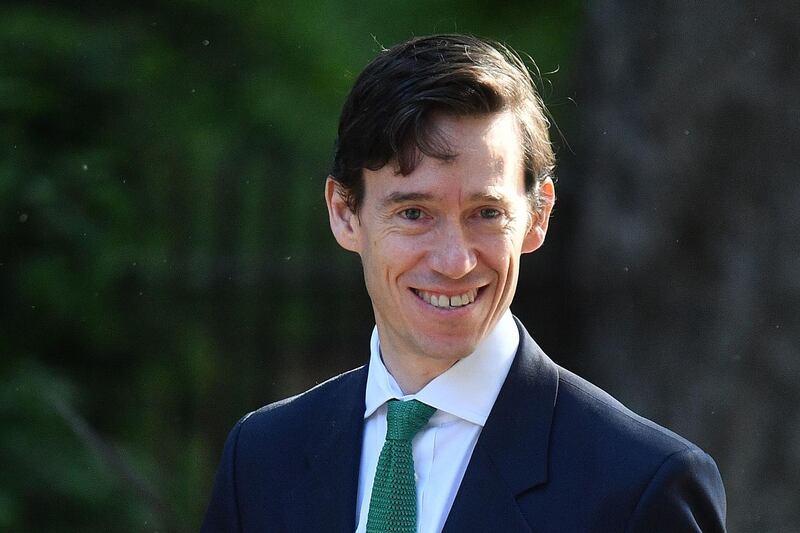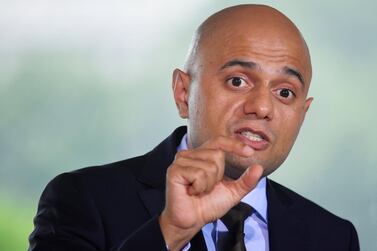International development minister Rory Stewart is harnessing social media in a bid to convince the British public he would make a better prime minister than his Conservative Party rivals.
“If anyone is around and wants to talk – Kew Gardens – for the next hour,” he said one video posted to his Twitter feed.
Now - if anyone is around and wants to talk - in Kew Gardens - for the next hour pic.twitter.com/E45A26Y5uR
— Rory Stewart (@RoryStewartUK) May 28, 2019
Mr Stewart, a former Iraq coalition official, has only an outside chance of winning the top job in UK politics.
But unlike leadership favourites Boris Johnson and Dominic Raab, he has spent the past few days out on the streets talking to people about what they want in a prime minister and posting his conversations on Twitter. In one video he is seen speaking “rusty Dari” to an Afghan resident of Barking, east London.
Born in then-British colony Hong Kong in 1973, he was brought up in Malaysia and Scotland by parents Brian and Sally Stewart. His father was a former British soldier who later became the second-most senior officer in Britain’s Secret Intelligence Service, MI6.
Mr Stewart was later educated at Eton College, which has produced 19 British prime ministers, and then studied Philosophy, Politics and Economics at Balliol College, Oxford University. His education is almost identical to that of Mr Johnson, who also attended Eton and Balliol.
Before becoming an MP in 2010, Mr Stewart was a diplomat working Iraq during the coalition invasion. He served in the Coalition Provisional Authority in two governates from 2003 to 2004, which saw him hold elections and resolve tribal disputes. He later wrote about his time in Iraq in two books, Occupational Hazards and The Prince of the Marches. He has also written about his experiences as an executive of a charity in Afghanistan in best-selling book, The Places in Between.
In a recent interview with the Evening Standard he compared post-war Iraq to post-Brexit referendum Britain.
“The most fundamental similarity is that there is a completely surreal gap between the way that the Government talks about this and what is actually going on on the ground,” he told the newspaper.
Mr Stewart was a supporter of Mrs May’s Brexit deal, despite supporting the Remain side in the 2016 vote.
His loyalty to the departing prime minister was rewarded earlier this month when he was promoted to the cabinet as international development minister, replacing Penny Mordaunt, who became defence minister following the sacking of Gavin Williamson.
Setting out his vision if chosen, Mr Stewart has pledged to double the amount of foreign aid spent on fighting climate change and shift foreign policy away from the Middle East to Asia.
On Brexit, he is the only candidate to explicitly rule out a no-deal exit, warning it could split the party for good. He said he would convene a 500-strong citizens assembly to try and find a way through the parliamentary impasse.
Media reports quoting an unnamed Conservative source have suggested he is a “suicide bomber” candidate put forward to clear the way for Mr Gove, who shares his values on climate change.
Mr Stewart said he believed the source was from Mr Johnson’s supporters and chastised them for using the term, which he said made him feel “uncomfortable” because of his experience in Iraq and Afghanistan.
Putting aside the fact that your suicide metaphor sits a bit awkwardly for someone who was in Iraq and Afghanistan - I’m not running tactically - I am running on principle and because I believe we can unify this country and make it a much better place - why don’t they debate me?
— Rory Stewart (@RoryStewartUK) May 28, 2019
While his unusual campaigning style is gaining a lot of media attention, the former diplomat is currently polling last in the leadership race behind his rivals.








